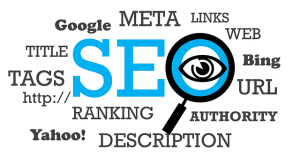Facebook commerce is quickly becoming a popular way for businesses to reach new customers and increase sales. With the rise of social media, more people are turning to Facebook as a way to find products and services they need. As a result, businesses are taking advantage of this platform to promote their products and services and increase their customer base.
Facebook commerce allows businesses to create an online store on the platform. This store can be used to showcase products and services, provide detailed descriptions, and even offer discounts or promotions. Businesses can also use the platform to communicate with customers, answer questions, and provide customer service.
Businesses can also use Facebook’s advertising tools to target specific audiences and get their products in front of potential customers. Ads can be targeted based on location, age, gender, interests, and more. This helps businesses reach the right people with the right message at the right time.
In addition to advertising, businesses can also take advantage of Facebook’s features such as groups and events to engage with their customers. Groups are great for creating communities around a product or service, while events are perfect for announcing sales or launching new products. Both of these features allow businesses to build relationships with their customers and keep them informed about what’s happening with their business.
Finally, businesses can use Facebook Insights to track how well their campaigns are performing. Insights provides detailed analytics on ad performance, engagement rates, audience demographics, and more. This data can help businesses adjust their strategies and optimize their campaigns for better results.
Overall, Facebook commerce is a great way for businesses to reach new customers and increase sales. By leveraging the platform’s features and advertising tools, businesses can create an online presence that will help them grow their customer base and boost their bottom line.




 On the other hand, with VPS hosting, each website has its own dedicated resources, so there is no risk of resource contention. Another key difference between shared hosting and VPS is the level of control you have over your server. With shared hosting, you don’t have root access to the server, so you can’t make any changes to the operating system or install custom software. With VPS hosting, however, you have full root access to the server, so you can configure it as you wish and install any software you need.
On the other hand, with VPS hosting, each website has its own dedicated resources, so there is no risk of resource contention. Another key difference between shared hosting and VPS is the level of control you have over your server. With shared hosting, you don’t have root access to the server, so you can’t make any changes to the operating system or install custom software. With VPS hosting, however, you have full root access to the server, so you can configure it as you wish and install any software you need.





